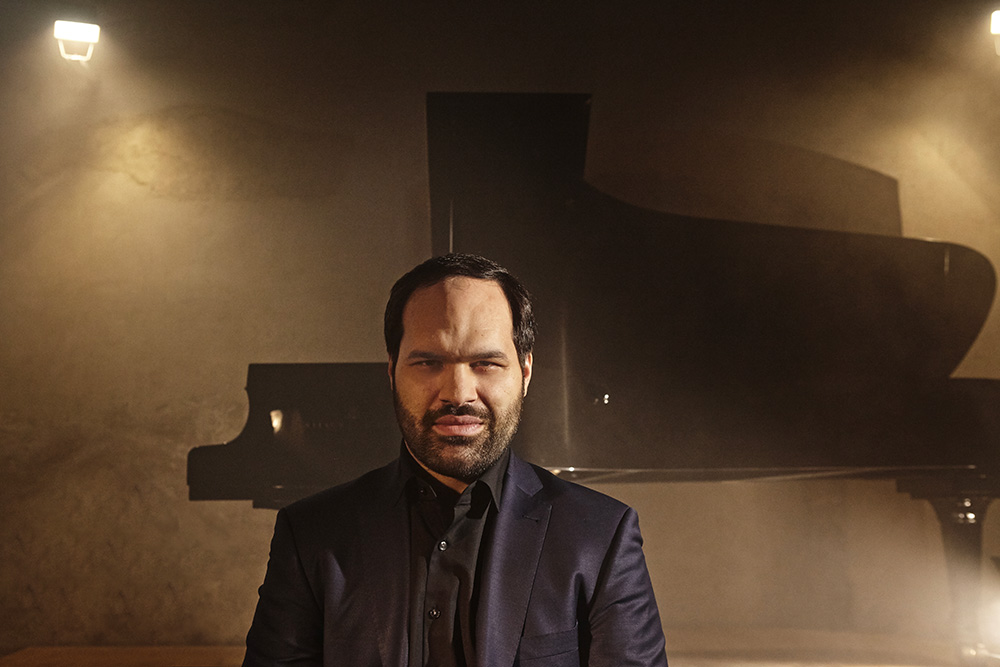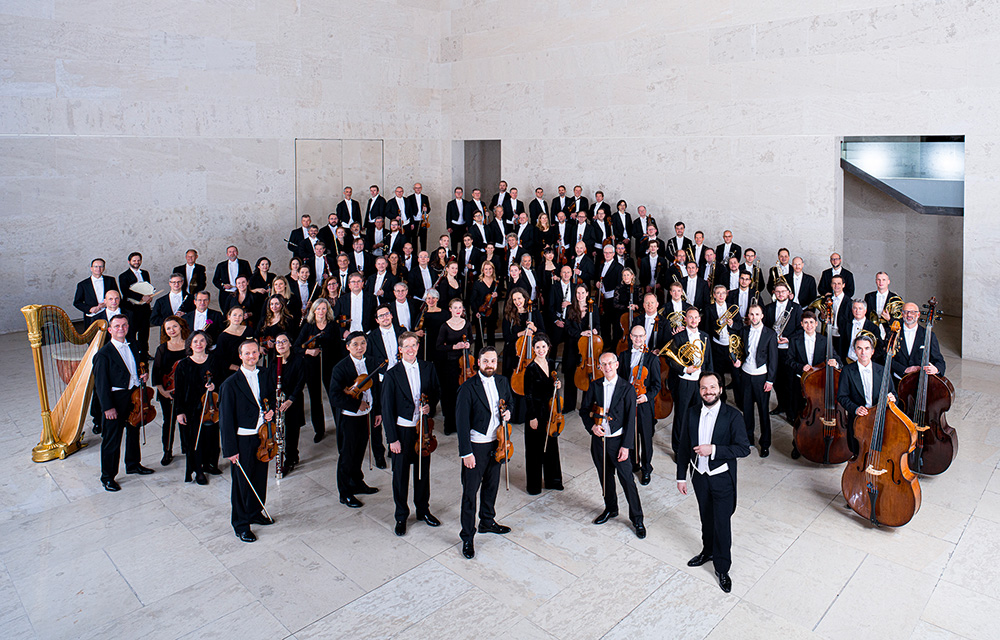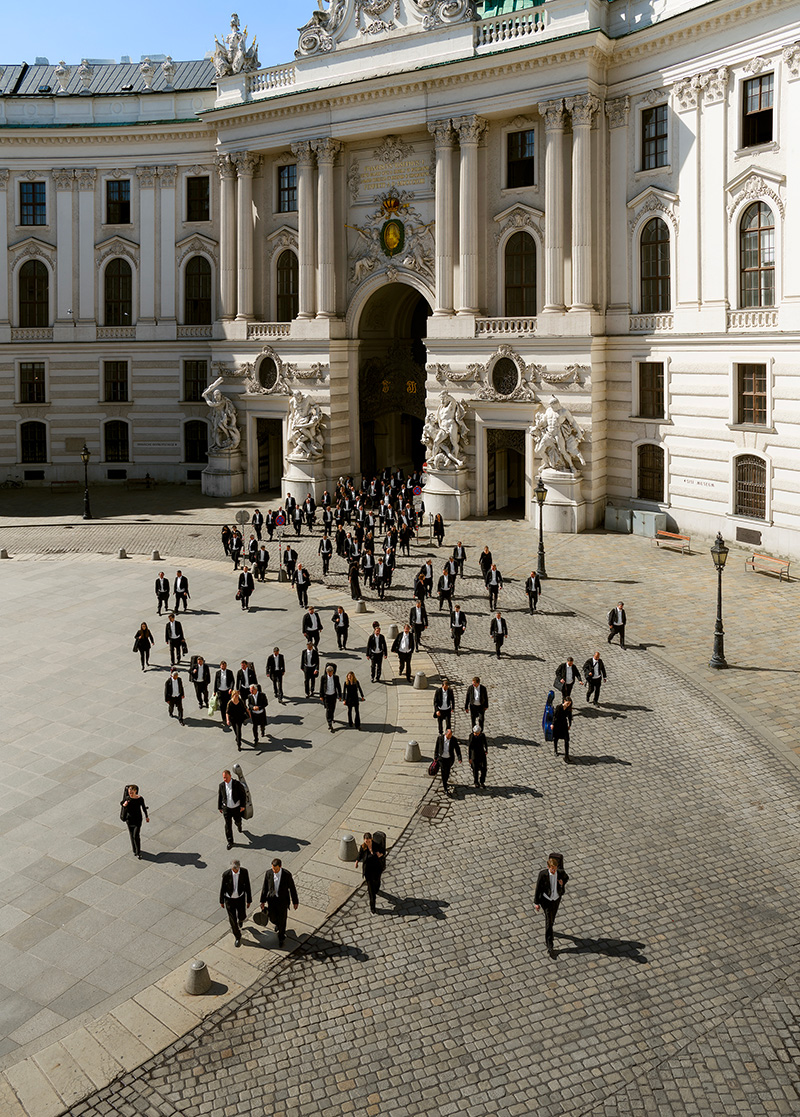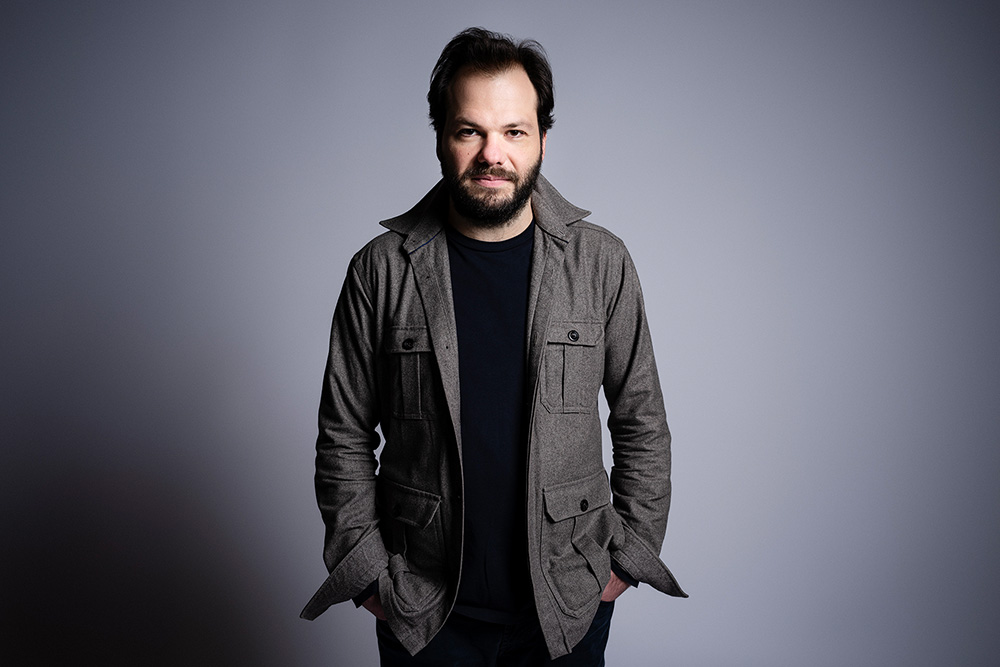Wiener Symphoniker
In cooperation with the Austrian Cultural Forum in Prague.
Programme
- Ludwig van Beethoven: Consecration of the House, overture Op. 124
- Ludwig van Beethoven: Concerto for Piano and Orchestra No. 5 in E-flat major Op. 73 "Emperor"
- Josef Strauss: Geheime Anziehungskräfte (The Mysterious Powers of Magnetism), waltz Op. 173 “Dynamiden”
- Richard Strauss: Der Rosenkavalier, suite from the opera
Performers
- Wiener Symphoniker
- Petr Popelka – conductor
- Jan Bartoš – piano
Pre-concert talk with Petr Popelka at 7 pm (in Czech without interpreting)
When the management of the Wiener Symphoniker announced that, from the 2024–2025 season, the position of the orchestra’s Chief Conductor would be assumed by Petr Popelka, the news caused a true sensation in music circles. The first Czech conductor in the Vienna Symphony’s history would take his place alongside such greats as Wilhelm Furtwängler, Herbert von Karajan, Wolfgang Sawallisch, Carlo Maria Giulini, Fabio Luisi and Philippe Jordan, who headed the Austrian capital’s orchestra before him. Popelka commented on his engagement with the following words: “To be appointed Chief Conductor of the Wiener Symphoniker is a dream come true. When I was still a teenager I would travel with my parents from Prague to Vienna to hear some of the world’s finest orchestras perform here. For me, the Wiener Symphoniker is the musical embodiment of Vienna, an orchestra that captures and evokes the atmosphere of the city, an ensemble with a rich tradition, yet, above all, an orchestra which has always cultivated a modern and pioneering spirit – both in its repertoire and within its role in society.” This will be the Wiener Symphoniker’s first Prague Spring appearance under its new Chief Conductor. The evening’s soloist will be Czech pianist of international standing Jan Bartoš.

The Wiener Symphoniker will be celebrating its 125th anniversary in 2025. The orchestra’s early days are particularly interesting from a modern perspective, since it paved the way for the presentation of contemporary music which, in its day, significantly set it apart from the Vienna Philharmonic; the orchestra acquired huge popularity, nevertheless, at the same time it also caused numerous musical scandals… During the Wiener Symphoniker’s first few decades it premiered what have since become emblematic works by Anton Bruckner, also Gurre-Lieder by Arnold Schönberg, Maurice Ravel’s Concerto for the Left Hand or Die Seejungfrau (The Mermaid) by Alexander Zemlinsky. And what is certainly worth mentioning here is the fact that, in one of their first concerts, they included Bedřich Smetana’s Vltava from the cycle Má vlast. The orchestra is also associated with such illustrious conductors and composers as Gustav Mahler, Franz Schreker, Richard Strauss, Anton Webern and Béla Bartók, and later Carlos Kleiber, Lorin Maazel, Claudio Abbado and Zubin Mehta.

The programme for this Prague Spring concert is markedly Viennese. It offers music by Ludwig van Beethoven (1770–1827), Josef Strauss (1827–1870) and Richard Strauss (1864–1949). “The works we will be performing in Prague are part of the orchestra’s DNA. It is intrinsically linked with Beethoven, then there’s the Viennese waltz, which requires singular collective freedom in musical phrasing,” says Popelka, who currently also holds the post of Chief Conductor of the Prague Radio Symphony Orchestra and is guest conductor with various eminent world orchestras, including the Chicago Symphony and Staatskapelle Dresden. The concert will begin with the overture Consecration of the House , which Beethoven wrote for the opening of the Theater in der Josefstadt, today the oldest, still active, Viennese theatre. This will be followed by Beethoven’s Piano Concerto No. 5, premiered in 1812 in Vienna. “The Fifth Piano Concerto is significant in many ways. Aware that his worsening hearing would prevent him from premiering the work himself, Beethoven approached the score in an entirely new way. For the first time, he withheld the customary freedom to improvise cadenzas, instead writing everything out. He also made full use of the technical advances of the period, both in the extraordinarily expansive piano part and in the orchestration, where he boldly employed more powerful wind and string forces,” states pianist Jan Bartoš, one of the Czech Republic’s most eminent musicians, moreover, a pupil of the legendary Ivan Moravec. Highlights of his forthcoming season include performances of Mendelssohn’s Concerto in D minor with Staatskapelle Berlin and Christian Thielemann and Bohuslav Martinů’s Piano Concerto No. 5 with the Bamberg Symphony under Jakub Hrůša. He regularly releases recordings on the Supraphon label to huge international critical acclaim. His latest album featuring works by Bedřich Smetana and Miloslav Kabeláč earned not only a nomination for the Preis der deutschen Schallplattenkritik, but also five stars from BBC Music Magazine, who described the CD as “one of the best and certainly most stimulating recordings of Czech piano music of recent years”. The celebrated pianist Alfred Brendel noted: “Jan Bartoš is one of my most impressive and exciting young colleagues. In him, virtuosity is coupled with deeply serious musicianship.”

The second half of the concert will begin with the waltz Dynamiden by Josef Strauss, a member of the family of popular Viennese composers. The work, which regularly features on the programme of the Vienna Philharmonic’s New Year concerts, was also known to Richard Strauss. “He borrowed the waltz motif for his opera Der Rosenkavalier and it is also unmistakable in the Suite, which we are performing in Prague,” says Petr Popelka. Strauss wrote the opera, set in 18th century Vienna, in collaboration with the Austrian dramatist Hugo von Hofmannsthal. Its magical atmosphere, full of comic situations, is also conveyed in the colourful Suite, an immensely virtuosic piece for the orchestra. With this in mind, Petr Popelka himself concludes with the words: “For the orchestra, it’s a true Paradestück!”
Photos of Wiener Symphoniker © Peter Rigaud, David Payr








